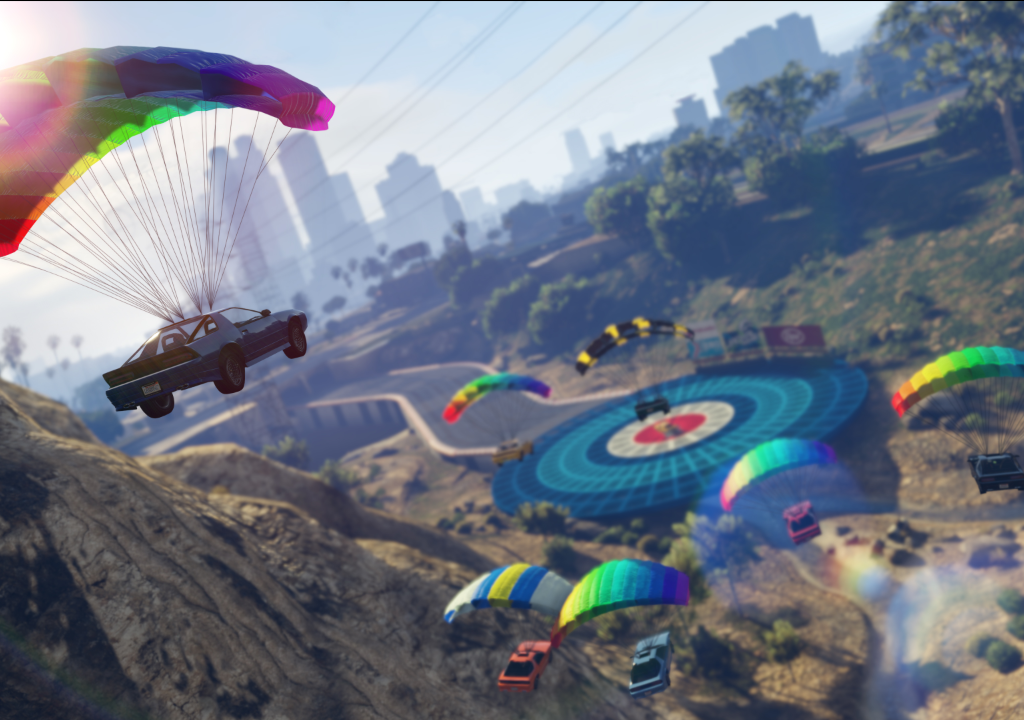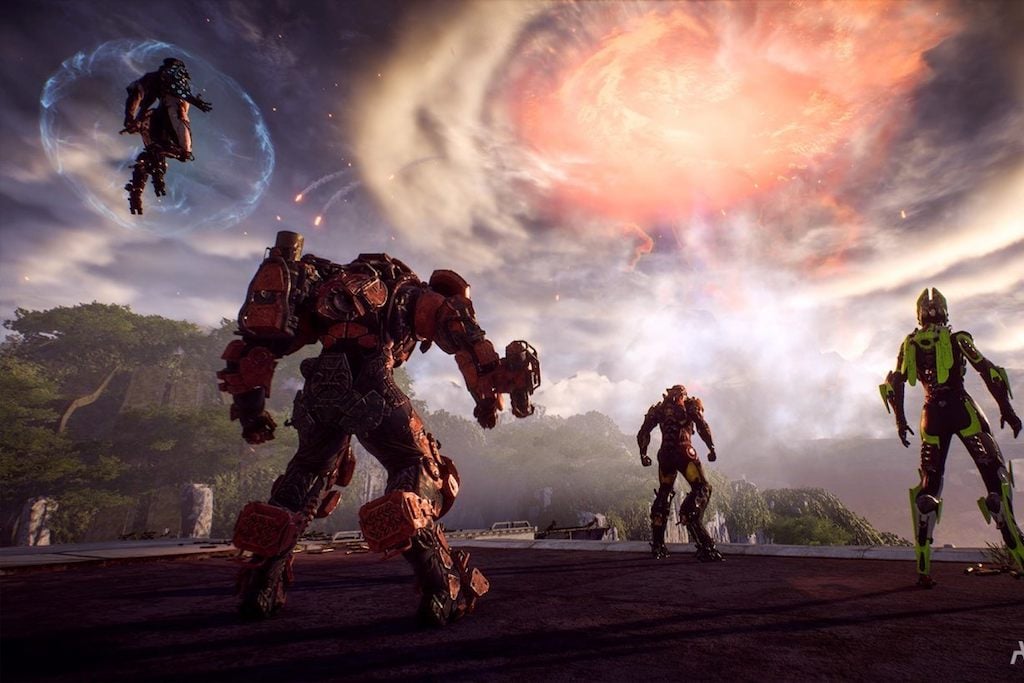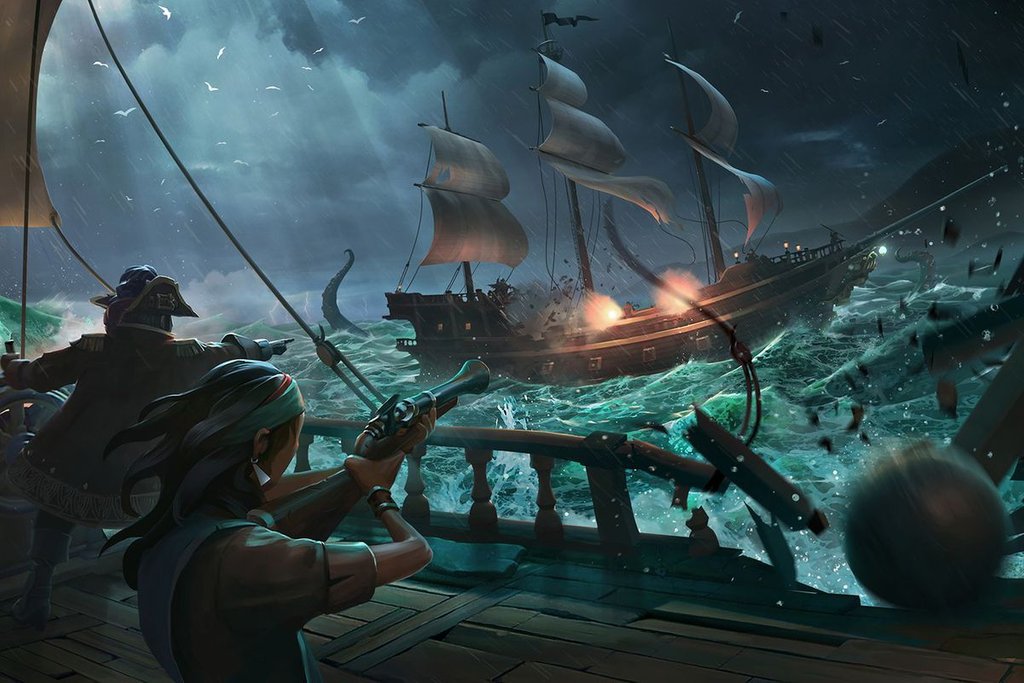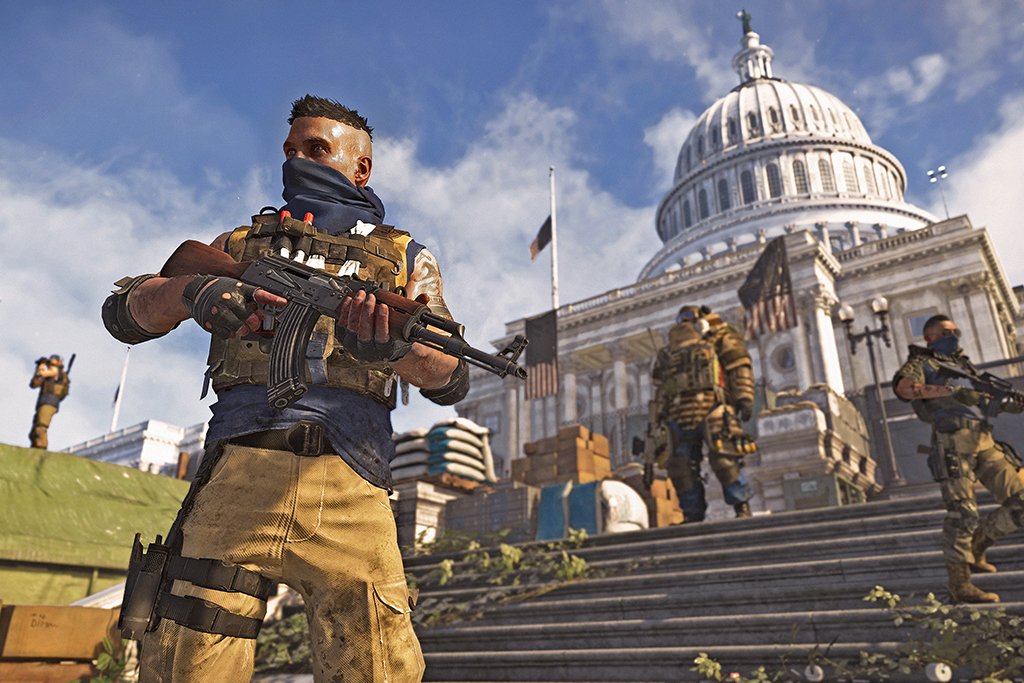When Video Game Endings No Longer Matter, We Create Our Own

There’s a scene in David Mamet’s stage play, Glengarry Glen Ross, where two salesmen discuss techniques. Over coffee, the angrier of the two men says, “You don’t sell a guy one car. You sell him five cars over fifteen years” to which his colleague replies “That’s right”. The first salesmen then reiterates with “You’re goddamn right it’s right”.
This method of selling makes total sense from a business standpoint. The customer shouldn’t simply be an opportunity for a quick, one-off sale but rather transform into a long-term revenue stream. Although, as slick and seemingly sensible as this concept is, that’s not the reason for the discussion in Mamet’s story.
The two salesmen are waxing nostalgic for the good old days. Because right now, they’re desperate. They’re grasping at straws to make something work like it did back when customers were total suckers. It’s not the same these days due to a different market with different clients while the only thing that has remained the same is the two salesmen. They’ll keep trying though, regardless of results. Because this technique has no end, no final bow to wrap around it. It’s a method and a mindset which is endless and it will continue on forever.
The two biggest publishers in the video game industry, Electronic Arts and Activision, have boosted their value by a combined $80 billion in the last decade. I’ll say that again: eighty billion dollars. To put this in perspective, there are dozens of small islands around the world currently available for private sale, including a really nice one near Fiji which has a price tag of $12 million. These publishers earnings’ would be enough to purchase all of the islands on the planet and have hundreds of millions of dollars left over for a big party afterwards.
A large part of this success happened when game publishers started putting more tails on their games. Live services, season passes, Ultimate Team modes – all sorts of ways to keep the player coming back to a game and spending more money. An endless revenue stream to maintain the life of a game world and continue turning over profit. And by God, it’s worked.

In 2018, Grand Theft Auto V became the highest earning piece of entertainment in human history. With the always-persistent, constantly-updated multiplayer world of GTA Online (which comes free with GTAV), Rockstar Games have banked over $6 billion from this one product, largely due to in-game transactions made by players well after the base game’s lifespan had expired. For a game that was released on the Xbox 360 in 2013, and still regularly sits within top ten sales charts in 2019, this is a monumental success story.
So in the last few years, the focus on these always-online games has naturally exploded. Especially in the world of consoles, it’s turned inward and popularised a new sub-genre that is easily identifiable but difficult to classify. They’re not quite multiplayer games and they’re not exactly single-player adventures either. These games try to dip a toe into both waters at the same time. Bungie’s Destiny, Ubisoft’s The Division, Rare’s Sea Of Thieves, Bethesda’s Fallout 76 and Bioware’s Anthem are all similar sides of the same dice: a story-lite game universe for you to team up with other players to complete quests and collect loot.
They’re like a best friend, only more reliable and more comforting. You want to be part of this, don’t you?
These aren’t extra modes bolted onto existing games, but rather a core design from day one. They’ve been created as an ongoing source of income to build upon with yearly roadmaps of story expansions, weapon skins and new areas to explore.
Of course, they’re not actually sold to market as these specific concepts. Instead, these games are advertised as good old fashioned, exhilarating, non-stop fun. Customise your personalised AVATRON in the exotic world of FNARNGARD to defeat the ancient evil of DARKBAWLZ and ensure the safety of the ICED VO-VO. I just made most of those words up but they sound pretty exciting already.
These games are not merely products, they’ll be with you for years to come as they constantly evolve and deliver more enjoyment than you can handle. All other games will pale in comparison to this eternal world of stimulation. They’re like a best friend, only more reliable and more comforting. You want to be part of this, don’t you? Pre-order now, you fool.
Zeitgeist notwithstanding, some inherent features can be common throughout these experiences. Namely, when they aren’t played by specific rules set down in their advertising strategy, their design begins to rattle and sometimes even break down.
As many of them state up front, adventures such as these are designed to be played with friends. A rigid knowledge of the game world is advantageous for your entire team so you can work together, defeat a boss and unlock a chest to get a new helmet or weapon or in-game currency. But as we all know, modern life is rubbish. Friends aren’t always available to fill out your team and go exploring while chatting over headsets. So the two remaining options in these games present themselves.
One choice is to allow the game’s internal programming to measure your skill level and choose corresponding players to instantly populate your team for the best experience. Random strangers are suddenly thrust into your life. Not only did a video game perform a meagre introduction to connect actual real human beings to each other but it is now expected, nay required, for you to work together.

The process is literally called ‘matchmaking’, and acts as an invisible cupid to place two or more people together based on compatibility. However, considering the state of the internet and certain gaming communities, it pays not to jump into this blind date with wild abandon. Do you speak to these people for strategy and planning? Or press the mute button and let your trigger finger do the talking?
Before you know it, you won’t have time to ask these questions as your new team is probably already off and running. You may not have explored this area of the map but time waits for no player as these strangers are racing at full speed to the next objective. In this event, how do you approach this issue? Do you say through your headset “Hang on new friend, can you slow down please, I wanted to look at this cave. I just bought this game and I don’t want to just run past all of it”? There’s nothing stopping you from approaching this topic of conversation but now these strange, tentative human interactions have taken priority over defending the world of wherever-the-hell against the evil whoever-the-fuck.
When playing with strangers, these worlds aren’t meant for rest or deep examination.
The game has added a new layer of meta-interaction that it’s not designed to accommodate. It is now about societal responsibility, which you apparently paid money to experience and then navigate. It’s a bizarre outcome of design and nails home the prominent reason for the marketing spiel of ‘best played with friends’.
When playing with strangers, these worlds aren’t meant for rest or deep examination. Because there’s always someone ahead of you, always someone better, always a nicer thing to own. No matter the struggle or failure or the emotional rollercoaster that these games bring, the hustle continues.
Your other choice is to go it alone. In games that allow it, you can discard any notion of a squad and just lone-wolf it. Despite PR people always maintaining that “Yes, our game can definitely be fun when you play solo!”, the results are wildly varied.
In Sea of Thieves, you’re dropped into a charming pirate world with your own ship and treasure maps. Skeletons attack, thunderstorms flood your ship and the occasional kraken rises from the deep to eat you alive. But in between dealing with these hazards and completing tasks for different quest givers, you come across other players with their own ships. Most of the time, especially if you’re solo, these players will murder you quick-smart.
After a half-dozen deaths, the very thing that Sea Of Thieves is built around (player vs player interaction) starts to become a frustrating annoyance. A hurdle which simply gets in the way of your love of the open sea and discovery of treasure. Yet without this multiplayer factor, it becomes clear that some of these games are just vague worlds which are spread way too thin.

Some of the salesmen in Glengarry Glen Ross become so desperate to outshine their colleagues that they commit a crime against their company in order to boost their chances. They hate their jobs, their bosses and their own lives in equal measure, so any action which attempts to change all three things in one night is worth trying.
Even if it means the risk of a prison sentence, the opportunity to sell to more customers and make more money is impossible to resist. Because in their mind, the customers are sitting out there, waiting to give them money. The salesmen’s day-to-day existence or any dreams of a better life no longer matters because the hustle will always continue.
there’s a theme that all of these games share regardless of the people who play them: none of them are designed to end.
If no friends are available and the in-game matchmaking is no longer fun, playing alone in these games remains your only option to continue. When you’re solo, you’re more likely to focus on story, which is often quick to consume because the smallest amount of narrative and character is only there to support the freedom of the playground. They exist somewhere on the fence between massively-multiplayer games and single-player RPGs and as such, aren’t built to ever become either of them.
With all that in mind, there’s a theme that all of these games share regardless of the people who play them: none of them are designed to end.
While main story campaigns have dormant states with questlines drying up for a few months before the next DLC release, the always-online universes which these games inhabit are built to last well beyond the player. Years and years of our lives pass while more areas of the map are bolted on, more items added, new quests introduced. The world of Bungie’s Destiny games has a tradition of huge annual expansion packs which add so much new content to the game that your actions in Year One are rendered largely meaningless. Chasing the new weapon type for your Warlock or chest plate for your Titan is now the story. And after you’re done with them, you still won’t see any credits rolling.
As a result of this inherent game design, the concept of an ending no longer matters. I walked the ruined streets of New York in The Division for dozens of hours and yet I can’t remember if I ever ‘finished’ it. I know I didn’t collect every item or search every street, but I’m struggling to recall if I completed the story element of the game. Was there even a story? Who were the characters? Did I even have a name? Who was I?
Without my knowledge, I’ve gradually created my own ending for all of these games. A deeply unsatisfying realisation that I haven’t touched them in months. I either lost interest or they weren’t as good without friends or I didn’t have the time or something-something. The game itself is still alive and the always-online world is still there but I woke up one morning to the slight surprise that I’m no longer taking part in it. That was the ending I’ll remember and it’s a poor substitute for a proper one.

Was I ready to move on? I suppose I must have been. It’s too late to go back now because I’d probably be lost with all the new content and high-level players who are now way ahead of me. I don’t even remember what I was doing in these games anyway. I should probably just wait for the sequel.
Years later, when talking about these games with friends, it’s almost always positive. The combat was fun or the environment and lighting was gorgeous – that sort of thing. Although if any of my friends asked me “Why did you stop playing?”, I’d be lost. I wouldn’t be able to think of a definitive reason. Destiny 2 had a big evil guy with a deep voice who did…something? A thing happened with the Anthem in Anthem. Sea Of Thieves doesn’t really even have a beginning, let alone an ending.
The emotional impact of what video games can achieve becomes dull and grey and is something you can’t really put your finger on anymore.
In turn, the personal journey of a game gets hazy. The emotional impact of what video games can achieve becomes dull and grey and is something you can’t really put your finger on anymore. At that point, they all sort of blend together as vague experiences rather than concrete pieces of individual video game history which resonate with the player for years to come. They’re not quite single-player stories and they don’t lean totally into multiplayer arenas either. It’s like I was just floating in a void for a while until I decided to leave. And even then, it didn’t feel like it was my decision.
After the crimes and the culprits are exposed in Mamet’s play, the remaining salesmen that haven’t destroyed their lives don’t immediately leave for a better job. They just get back to work. Nothing in this business is ruined beyond repair and their internal compasses haven’t changed at all.
They just pick up the phone and run through the script of a sales pitch they’ve tried countless times before. They don’t believe in what they’re selling but will continue to try to convince the customer to believe. They just want the sale. Again and again. Forever.
The only ending that exists for this strange sub-genre of video game is when it stops making money and development work transfers over to a hopefully financially-viable sequel. The original game itself might continue to live and breathe but only until the last remnants of a player base finally logs off and completely abandons it.
Then five or ten years later, someone in an office somewhere will turn off the servers and the game, as it was originally designed to be played, becomes no longer accessible and is gone forever. All the progression will disappear, the loot will be deleted and all these strange shared worlds will go dark. No matter the amount of hours played and millions of dollars spent, you can’t get a more definitive ending than that.






